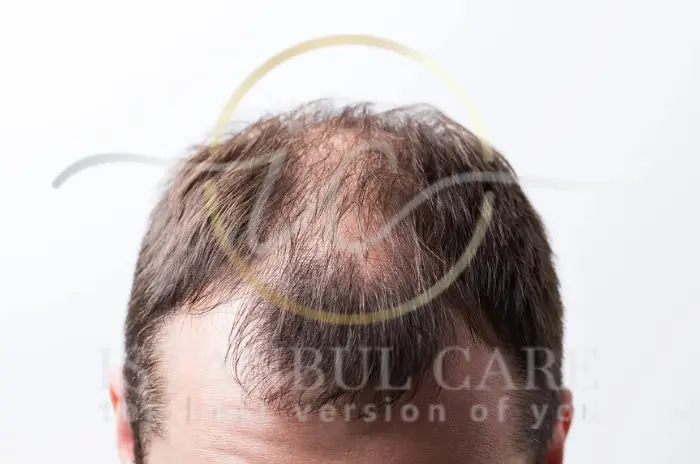Modern life's relentless stress significantly affects our adrenal glands and hair health. At Istanbul Care Clinic, we understand the complex relationship between adrenal function and hair vitality. Many patients experiencing unexplained hair thinning discover that chronic stress and adrenal dysfunction may be underlying causes.

What Is Adrenal Tiredness Function and How It Affects Hair
The adrenal glands play a crucial role in maintaining hormonal balance, directly impacting hair follicle health and growth cycles.Role of adrenal glands in hormone control
The adrenal glands, located above each kidney, serve as the body's primary stress response system. These vital glands produce multiple hormones regulating metabolism, immune function, and stress response. Primary Hormones Produced:- Cortisol: Primary stress hormone regulating metabolism
- DHEA: Precursor to sex hormones affecting hair growth
- Aldosterone: Regulates blood pressure and electrolytes
- Adrenaline: Immediate stress response hormone
How adrenal insufficiency leads to hair thinning
Adrenal insufficiency disrupts the normal hormonal environment necessary for optimal hair growth through several mechanisms:Follicle Miniaturization: Excessive cortisol causes hair follicles to shrink, producing progressively thinner strands that eventually stop growing.
Disrupted Growth Phases: Adrenal dysfunction shortens the growth phase while extending the resting phase, resulting in increased shedding and reduced new growth. Nutrient Depletion: Chronic stress depletes essential nutrients like B vitamins, zinc, and iron crucial for hair protein synthesis.Causes and Risk Factors for Adrenal Problems
Understanding triggers for adrenal dysfunction helps identify those at risk for stress-related hair loss.
Autoimmune Disorders That Impact Adrenals
Addison's Disease: Primary adrenal insufficiency where immune system destroys adrenal tissue, leading to severe hormonal deficiencies and dramatic hair loss. Hashimoto's Thyroiditis: While affecting thyroid, this condition correlates with adrenal dysfunction due to interconnected endocrine systems. Polyglandular Syndromes: Multiple endocrine glands become targets, including adrenals, leading to complex hormonal imbalances.How Chronic Stress Wears Out Your Adrenals
Workplace Stress: Prolonged pressure keeps cortisol levels chronically elevated, eventually leading to adrenal fatigue. Emotional Trauma: Significant life events trigger sustained adrenal activation beyond recovery capacity. Physical Stressors: Chronic illness, insufficient sleep, over-exercising, or poor nutrition place continuous demands on adrenal function.Medications That May Affect Adrenal Tiredness Function
- Corticosteroids: Long-term use suppresses natural cortisol production
- Birth Control Pills: Alter hormone balance and adrenal function
- Antidepressants: Some classes influence cortisol regulation
- Blood Pressure Medications: Certain types impact adrenal hormone synthesis
Signs of Adrenal Fatigue Related to Hair Loss
Recognizing adrenal fatigue symptoms helps identify the root cause of unexplained hair changes.Common symptoms: fatigue, low blood pressure, weight loss
Energy Patterns:- Morning fatigue despite adequate sleep
- Mid-afternoon energy crashes
- Difficulty recovering from stress
- Feeling "tired but wired" evenings
- Unexplained weight loss
- Low blood pressure with dizziness
- Salt cravings
- Frequent infections
Mood Changes:
- Increased irritability
- Brain fog and concentration difficulties
- Feeling overwhelmed by daily tasks
Hair loss as part of adrenal fatigue symptoms
Progressive Thinning: Hair gradually becomes finer, particularly at crown and temples.
Increased Shedding: More hair appears on pillows, drains, or when brushing.
Texture Changes: Hair becomes brittle, dry, or difficult to style.
Delayed Regrowth: New growth appears slower and weaker.
Recognizing Adrenal Fatigue Symptoms in Hair Health
Understanding specific hair-related symptoms helps differentiate adrenal-related hair loss from other causes.
Early Signs of Adrenal-Related Hair Loss
Diffuse Thinning Pattern: Affects entire scalp rather than specific areas like genetic balding.
Seasonal Variations: Hair loss worsens during high-stress periods.
Concurrent Body Hair Loss: Thinning affects eyebrows, eyelashes, and body hair.
How Adrenal Exhaustion Differs from Genetic Balding
| Characteristic | Adrenal-Related Hair Loss | Genetic Balding |
|---|---|---|
| Pattern | Diffuse, all-over thinning | Specific areas (crown, temples) |
| Onset | Gradual, stress-related | Age-related progression |
| Reversibility | Potentially reversible | Progressive, not reversible |
| Symptoms | Fatigue, stress symptoms | Usually isolated to hair |

Telogen Effluvium: When Stress Triggers Hair Shedding
Telogen effluvium occurs when stress pushes large numbers of hair follicles into resting phase simultaneously. Major stress events trigger this condition 2-3 months later. With proper adrenal support, hair typically begins regrowing within 3-6 months.Understanding the Adrenal Glands and Stress Hormones
What do the adrenal glands do?
The adrenal glands function as stress response headquarters, consisting of two regions: Adrenal Cortex: Produces steroid hormones including cortisol, aldosterone, and sex hormone precursors. Adrenal Medulla: Produces adrenaline and noradrenaline for immediate stress response.How cortisol works during stress
Normal Function: Cortisol follows circadian rhythm, highest in morning, declining throughout day. Stress Response: During stress, cortisol increases to mobilize energy and maintain blood pressure. Chronic Elevation: Prolonged stress leads to consistently elevated cortisol, eventually depleting adrenal capacity.How Stress Hormones Can Cause Hair Loss
What is adrenal fatigue?
Adrenal fatigue describes a condition where adrenals cannot adequately meet stress demands, resulting in various symptoms including hair loss. Stages: Alarm (elevated cortisol), Resistance (sustained high cortisol), Exhaustion (declining cortisol production).Effects of cortisol on DHEA and testosterone
DHEA Suppression: Chronic cortisol elevation suppresses DHEA production, reducing hair-supporting hormone building blocks.
Testosterone Conversion: Stress hormones increase conversion to DHT, causing follicle miniaturization. Protein Synthesis Disruption: High cortisol interferes with keratin production essential for healthy hair.Why women may see more hair thinning
Women experience more pronounced adrenal-related hair loss due to hormonal fluctuations, lower baseline testosterone, and life stage factors like pregnancy and menopause.
Hair Loss Treatments Addressing Adrenal‑Related Thinning
Follicular Unit Transplantation (FUT) for hair restoration
FUT hair transplant involves removing hair-bearing scalp strip and transplanting individual follicles to thinning areas. Works well for patients with stabilized hormonal imbalances, providing permanent restoration with high graft survival rates.Follicular Unit Extraction (FUE) for thinning hair
FUE hair transplant extracts individual follicles without linear incision, suitable for diffuse thinning. Benefits include minimal scarring, shorter recovery, and suitability for shorter hairstyles.Non‑surgical options like PRP therapy and laser treatment
PRP Therapy: Concentrates growth factors to stimulate follicles, particularly effective for early-stage hair loss. Laser Therapy: Uses red light to stimulate cellular activity in follicles. Topical Treatments: Minoxidil and FDA-approved treatments help maintain hair while addressing adrenal issues.Restoring Adrenal Health to Prevent Hair Loss
Balancing Cortisol for Healthier Hair
Stress Management:- Regular meditation or mindfulness
- Deep breathing exercises
- Adequate sleep (7-9 hours)
- Consistent daily routines
Lifestyle Modifications:
- Moderate exercise (avoiding overtraining)
- Limiting caffeine and alcohol
- Work-life boundaries
Natural Ways to Support Adrenal Function
Adaptogenic Herbs:
- Ashwagandha: Reduces cortisol
- Rhodiola: Improves stress tolerance
- Holy Basil: Balances cortisol naturally
- Licorice Root: Supports adrenal function
Nutritional Support:
- B-complex vitamins for energy
- Vitamin C for adrenal support
- Magnesium for stress reduction
- Omega-3 fatty acids for inflammation
DHEA Supplementation and Hair Regrowth
DHEA supplementation may help restore hormonal balance and support hair regrowth when used under medical supervision with appropriate hormone testing.Effective Treatments for Adrenal Fatigue Hair Loss
Medical Therapies to Restore Hormonal Balance
Hormone Replacement: May be necessary in documented adrenal insufficiency cases. Thyroid Support: Addressing thyroid imbalances often improves adrenal health. Nutrient Testing: Allows targeted supplementation for adrenal recovery.Natural Remedies to Support Adrenal Recovery
Herbal Protocols: Combining adaptogenic herbs provides synergistic benefits. Acupuncture: Helps balance energy and support adrenal function. Massage Therapy: Reduces cortisol levels and promotes relaxation.Diet and Lifestyle Changes for Hair Regrowth
Anti-Inflammatory Diet:- Whole foods rich in antioxidants
- Healthy fats from fish, nuts, seeds
- Adequate protein for hair building blocks
- Limited processed foods and sugars
We’re ready to answer your questions
The adrenal glands produce essential hormones including cortisol, DHEA, and adrenaline that regulate stress response and hormone balance. When compromised, chronically elevated cortisol disrupts hair follicle growth cycles, causes follicle miniaturization, and depletes nutrients essential for hair protein synthesis, resulting in progressive thinning and increased shedding.
Common causes include chronic stress, autoimmune disorders like Addison's disease, certain medications (corticosteroids, birth control), insufficient sleep, over-exercising, and poor nutrition. Risk factors include prolonged high-stress lifestyles, autoimmune conditions, hormonal fluctuations in women, and genetic predisposition to stress sensitivity.
Key signs include persistent morning fatigue, mid-afternoon energy crashes, difficulty recovering from stress, unexplained weight loss, low blood pressure, salt cravings, mood swings, and brain fog. Hair-specific symptoms include diffuse thinning, increased shedding, brittle texture, slower regrowth, and concurrent thinning of eyebrows and body hair.
Chronic cortisol elevation disrupts hair growth by causing follicle shrinkage, shortening growth phases, suppressing DHEA production, increasing DHT conversion, and interfering with protein synthesis needed for keratin production. This creates a cascade where stress perpetuates more hair loss, creating additional stress.
Treatment includes surgical options like FUT and FUE transplants for severe cases, non-surgical treatments like PRP and laser therapy, medical therapies including hormone replacement, and natural remedies such as adaptogenic herbs, stress management, anti-inflammatory diets, and lifestyle modifications to support adrenal recovery.
Balancing cortisol through stress management, adequate sleep, and consistent routines helps restore normal hair growth cycles. Supporting adrenal health with herbs, vitamins, and proper nutrition provides resources for hormone production and hair protein synthesis, addressing root causes rather than just symptoms.
Telogen effluvium occurs when stress pushes hair follicles into resting phase simultaneously, causing widespread shedding 2-3 months after triggering events. It's related to adrenal dysfunction because chronic stress and elevated cortisol disrupt normal growth cycles. Unlike genetic balding, it's potentially reversible with proper stress management.
Adrenal-related hair loss presents as diffuse thinning across the entire scalp rather than specific patterns, occurs alongside other adrenal symptoms, develops gradually with stress rather than age-related progression, and is potentially reversible with hormonal balance treatment, unlike progressive genetic balding.
Follow us on social media for updates, tips, and patient success stories:

